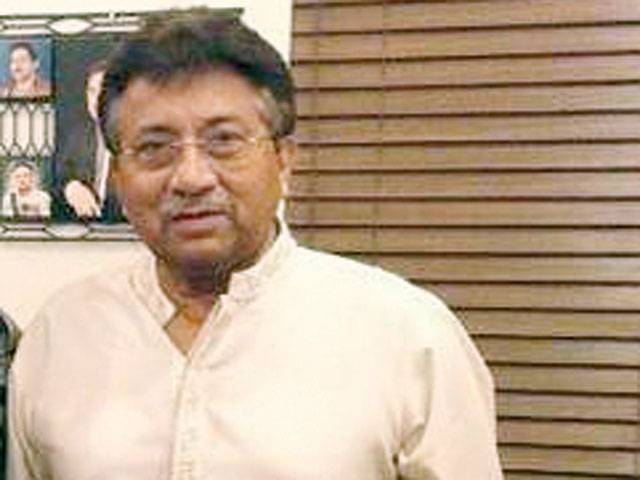ISLAMABAD - Former President Pervez Musharraf Tuesday moved the Supreme Court with the pray to set aside the Special Court’s January 10 order and declare it illegal and void ab-initio.
A three-judge Special Court on January 10 had held that the Code of Criminal Procedure would be made applicable to and was liable to act upon, except for those provisions, which were provided in the Special Law.
The former dictator filed the petition under Article 184(4) of the Constitution making federation through Secretary Interior and Special Court through its registrar as respondents.
It was contended in the application that the offence being tried against Musharraf is sui-generis in nature and not an offence under any other law, but a stipulation under Article 6 of the Constitution. The punishment for it is given in High Treason (Punishment) Act 1976, and not in the Schedule I of the Code of Criminal Procedure.
It questioned whether the procedure prescribed by the CrPC could be applied to, and does the Special Court have the authority conferred by that code. It also asked that the Special Court has the jurisdiction or, authority to pass any order or exercise any jurisdiction or authority, beyond what is provided by the Criminal Law (Amendment) Act, 1976.
It is submitted that it is categorically stipulated in Section 13 of Act XVII of 1976 that the Special Law will override all other laws specifically, the Code of Criminal Procedure and the Evidence Act or any other law for the time being in force, would not be applicable to the proceedings conducted by the Special Court under the Criminal Law (Amendment) Act, 1976.
It is further submitted that otherwise also that by the Pakistan Army (Amendment) Act, 1977 (Act X of 1977), bars proceeding by any other law or court and that the proceeding are to be exclusively conducted by Court Martial.
Musharraf contended that the Special Court, proceeded to, without authority and jurisdiction, held that the Code of CrPC would be applicable, disregarding the various legal issues and facts.
The judgment is in excess of authority and jurisdiction. The order did not appreciate the law, thus is illegal and void ab-initio, and is not liable to be acted upon.
The judges of Special Court, interalia, sought for themselves power and authority, which was conferred by Criminal Law (Amendment) Act 1976.
The judges Special Court, failed to appreciate the fact, interalia, that they were bound by the Special Law and none other and acting beyond that law was an act which was illegal, unconstitutional and void ab-initio.
He said that the Special Court had no jurisdiction to pass any order or proceed in the matter as the law does not allow or permit any Special Court to legislate to arrogate to itself to legislate on the pretext of interpretation.
Saturday, April 20, 2024
Mush moves SC against special court’s order

Caption: Mush moves SC against special court’s order
Heavy rains claim 98 lives, 89 injuries, across Pakistan: NDMA
1:21 PM | April 20, 2024
Watercourse project to help increase crop yields in Punjab
12:57 PM | April 20, 2024
Justice Ishtiaq Ibrahim sworn in as PHC chief justice
12:54 PM | April 20, 2024
Policitising Tragedy
April 20, 2024
Tehran to Rafah
April 20, 2024
A New Leaf
April 20, 2024
A Tense Neighbourhood
April 19, 2024
Dubai Underwater
April 19, 2024
Dangers of Deepfakes
April 20, 2024
Feudalism
April 20, 2024
Kite tragedy
April 19, 2024
Discipline dilemma
April 19, 2024
Urgent plea
April 19, 2024
ePaper - Nawaiwaqt
Advertisement
Nawaiwaqt Group | Copyright © 2024





